Blane, with all disrespect, your a clear reason not to have a family
I’m Child-Free, and My Parents Chose to Leave Their Legacy to My Cousin—So I Turned the Tables
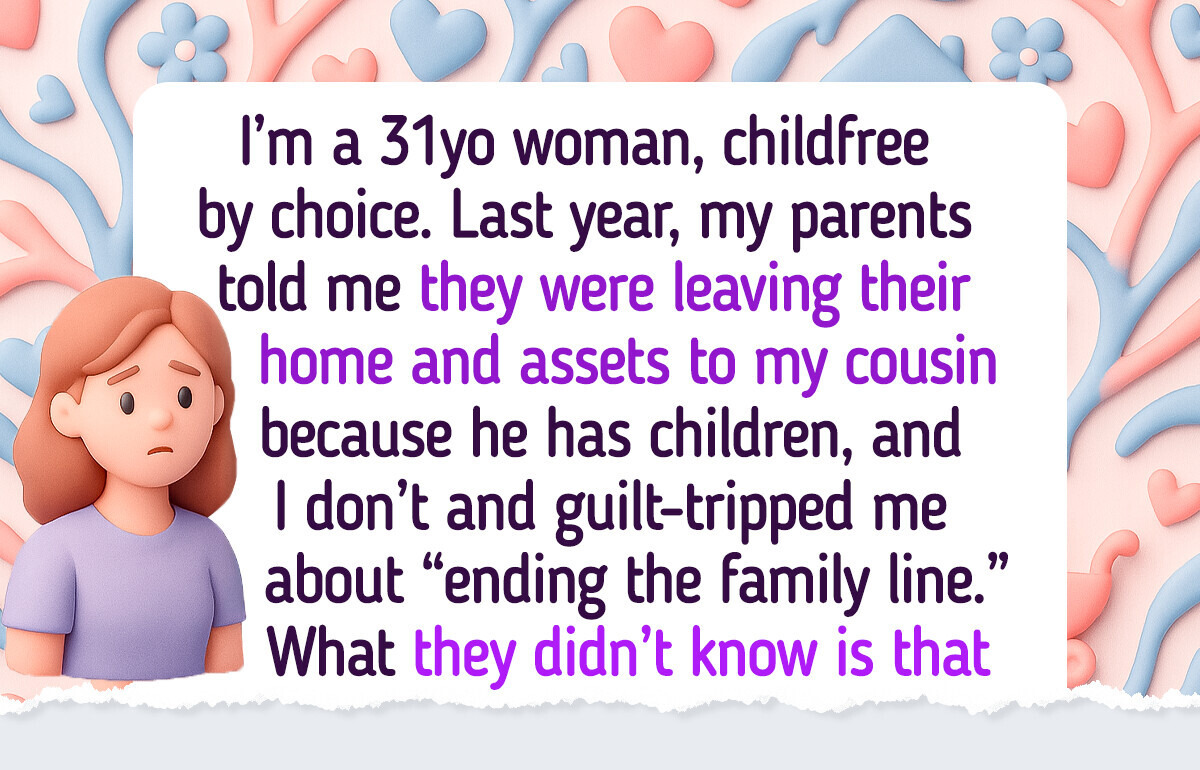
Recently, one of our wonderful readers reached out to us with a story close to her heart. She wanted to share her perspective on something deeply personal — her choice to live a child-free life. Her words were honest. And they reminded us that behind every choice, there’s a meaningful journey.
Her letter
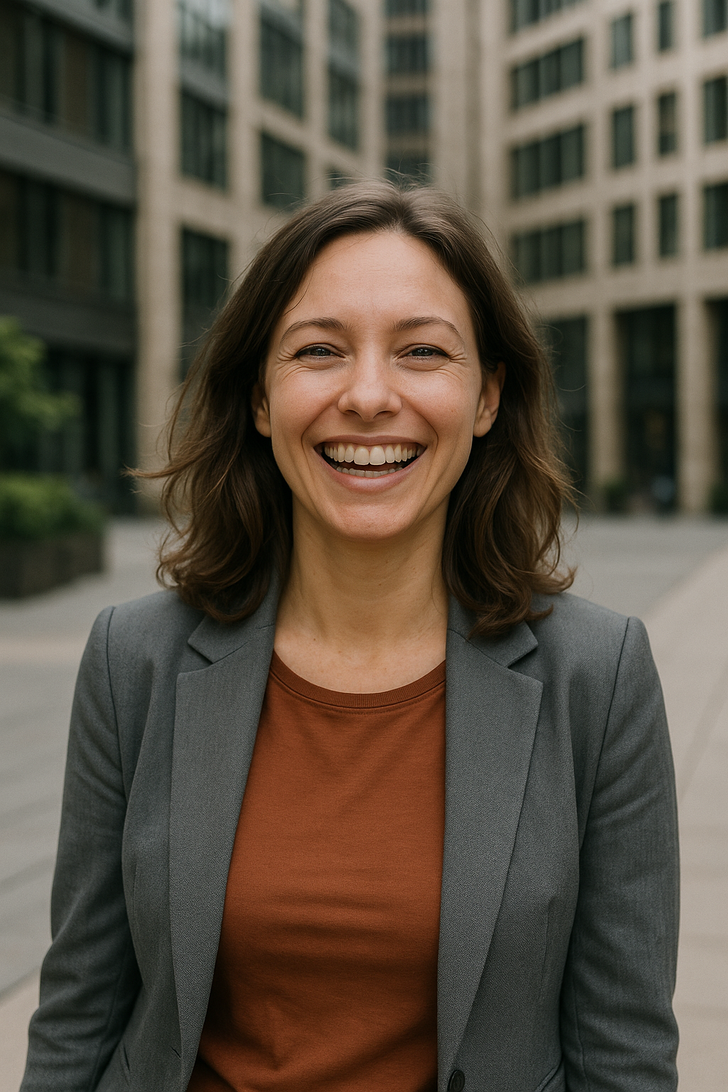
“I’m a 31-year-old woman, childfree by choice. I’ve built a stable, successful life and never once relied on my parents for help. They’ve never accepted my decision not to have kids and constantly guilt-tripped me about ‘ending the family line.’
Last year, they told me they were leaving their home and assets to my cousin—because he has children, and I don’t. Apparently, I wasn’t worthy of carrying on their legacy.
What they didn’t know is that I’d been saving to surprise them with their dream retirement house near the lake. It was all lined up—until they made it clear I didn’t matter unless I reproduced.
So I bought the house. For me. I moved in, made it mine, and let them know—briefly—that the chance they had was gone.
They gave their ‘legacy’ to someone else. I kept my peace, my independence, and a lakefront view.
Best decision I’ve ever made.”
What science says about living without kids.
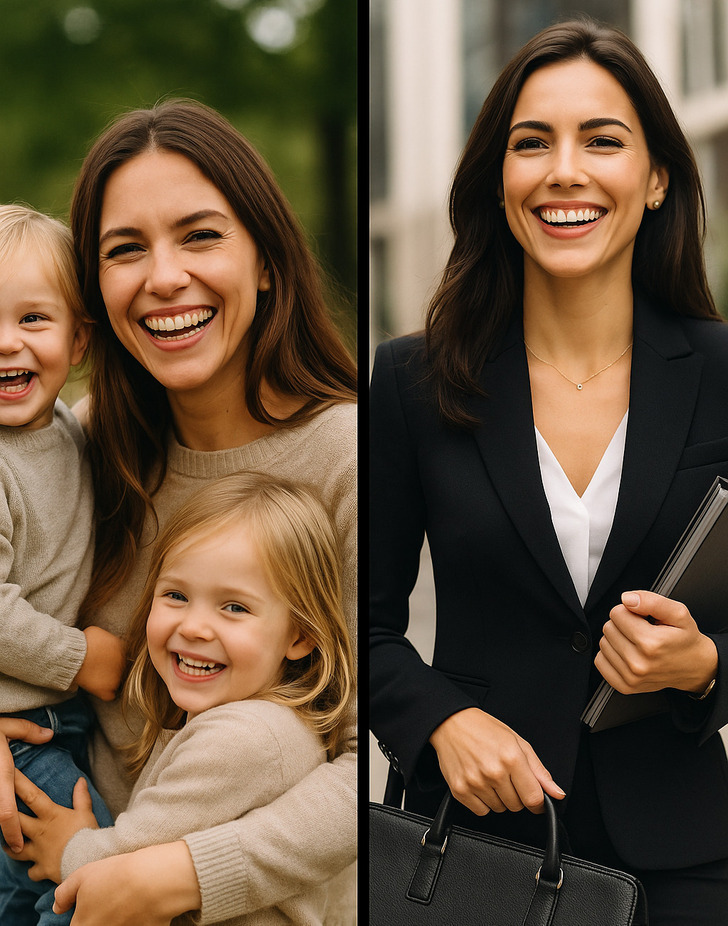
Children are not "entitled" to their parents personal or real property. They can leave it to anyone they want and for any reason.
With all the recent buzz around dropping fertility rates, people are getting more open about their decisions to skip parenting. But going child-free isn’t a brand-new trend. In fact, aside from the baby boom in the 1950s, history shows that childlessness has always been around in some form.
What’s different now is the conversation. Today, people are talking more about stereotypes, expectations placed on women, what “family” really means, and how society views those who don’t follow the traditional path.
Interestingly, research shows a mixed bag when it comes to how going child-free affects mental health. A lot of it comes down to why someone makes that choice. Most studies show high satisfaction among those who chose not to have kids. But for people who wanted children and couldn’t have them — whether due to money, health, or outside circumstances — things can feel tougher emotionally.
The good news? Many studies also show there’s little to no difference in happiness levels between parents and non-parents.
So, what does it really mean to be child-free?
Deciding not to have children is deeply personal — and it can stir up a lot of feelings. It might make you question what your future will look like, how others see you, and even how you see yourself.
Sometimes it can be scary. Not because it’s the wrong choice, but because it’s a different one — and different often makes people uncomfortable. For friends and family, it may take time to adjust, especially if they had a different vision in mind. But at the end of the day, the person living your life... is you.
Making choices that feel right for you — no matter what others think — is one of the most empowering things you can do. And if you ever feel unsure, talking it out with a therapist can help you feel stronger and more confident about walking your own path. Whether you choose to raise children or not, your life can be meaningful, happy, and totally your own.
Sometimes, the most powerful legacy isn’t the one you’re handed — it’s the one you create for yourself.
Comments
All I can say after reading some of the stories that my parents couldn't have cared if any of us didn't have children and one of my brothers didn't. One of our sons isn't likely to have children but his partner has 2 beautiful children who call us Nana and Poppy.
I never had in-laws because they passed away before we were married. I guess I have had a boring life
Narcissist
No one is guaranteed an inheritance no.matter what. Don't want children , don't have them. Your parents are free to leave their money to whoever they want. Sometimes you leave money to those who need it the most. Sounds like you are doing fine.
This person sound extremely selfish and it's probably a great thing she didn't have kids. Completely awful
It looks like almost everyone here is missing the point.
Which is that her parents were trying to emotionally and blackmail and threatening her with her inheritance into doing something she didn't want to do.
I wouldn't have put up with it either.
She was done. There is nothing that says she had to put up with being treated like that.
And it's not like her parents were hard up or anything.
Related Reads
I Refuse to Help My Sick Mom—Even If She Calls Me Heartless
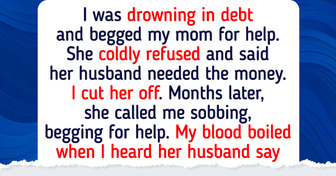
10 Holiday Gatherings That Proved Family Drama Has No Days Off
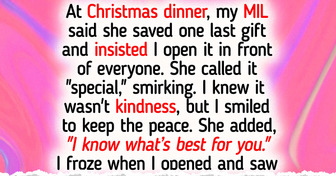
15 Moments That Show Kindness Is Quiet but Changes Everything

16 Moments That Remind Us to Stay Kind Even If the World Turns Ice Cold
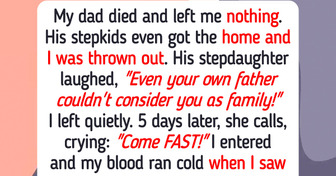
I Refuse to Forgive My Wife for What She Did to My Son

14 Times Reality Proved to Be a Better Screenwriter Than Hollywood Could Ever Be
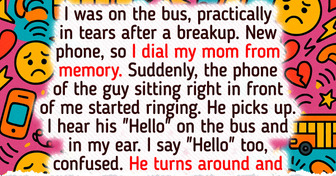
20 Stories That Remind Us to Stay Kind Even When Life Stops Playing Fair
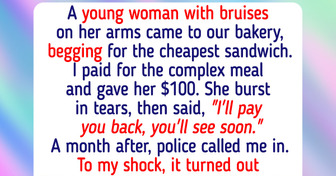
I Refused to Let My Toxic MIL Move In—Now My Husband’s Family Says I’m Ruining Their Lives
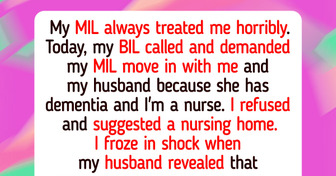
15 Stories That Capture the Bittersweet Journey of Blended Families
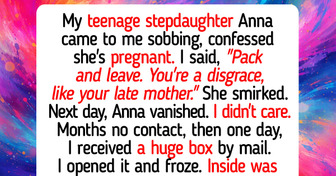
12 Moments That Teach Us to Choose Kindness Even When Life Turns Unfair
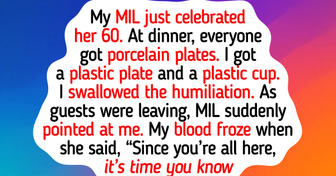
I Funded My Wife’s Luxury Demands—She Made Me Regret Every Penny

I Refuse to Help My Pregnant Sister, and I Don’t Feel Guilty
